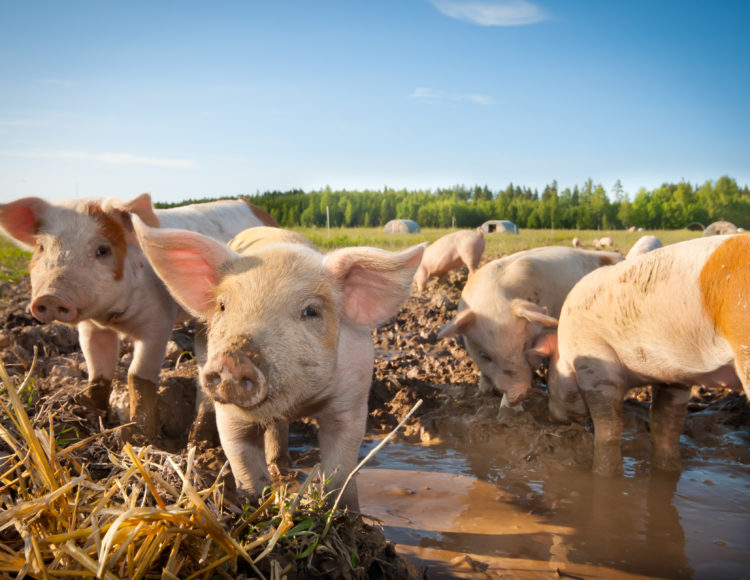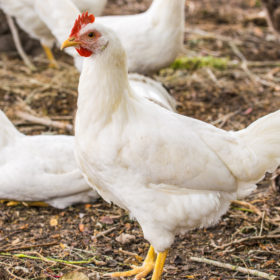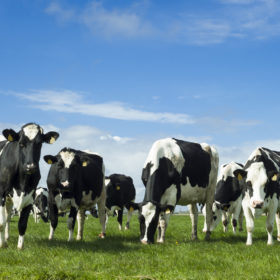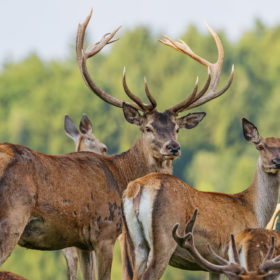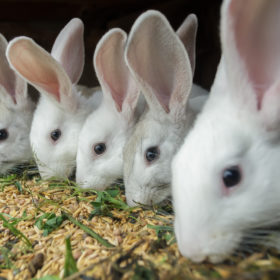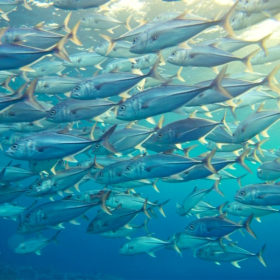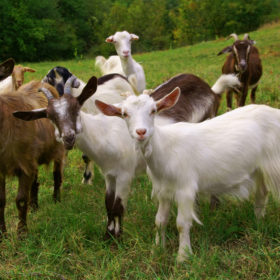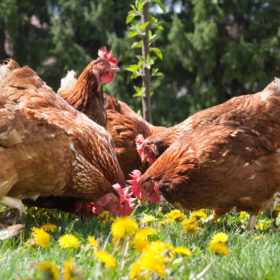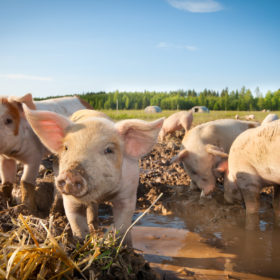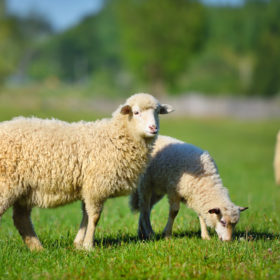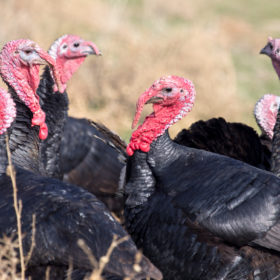In the UK alone, over two million land animals are slaughtered daily and almost 600,000 tonnes of fish are killed each year.
70% of pigs reared in the UK are farmed intensively.
- These intelligent and inquisitive animals are forced to live entirely indoors, in over-crowded sheds that do not allow them to express natural behaviours, such as foraging and nest-building.
- Intensively-reared sows give birth and raise their young in farrowing crates. These metal crates are so small that sows cannot turn around or suckle their piglets.
Birds factory farmed today grow three times as fast as they did 50 years ago.
- Broiler chickens have been selectively bred and reared for their meat. The majority live in large, crowded, windowless sheds with tens of thousands of other birds.
Most sheep are not farmed intensively, but they still suffer.
- Diseases such as lameness, mastitis, sheep scab, pneumonia and hypothermia are common.
- Sheep may be transported considerable distances to slaughter; some journeys last 24 hours or more.
- Calves have to endure castration, disbudding and dehorning.
- Increasing numbers of beef cattle are housed in pens on concrete or slats without bedding.
Fish do feel pain.
- Almost half of the fish we consume today are reared intensively on fish farms, where they suffer increased stress and disease.
- When wild fish are caught and hauled to the surface, decompression can cause their eyes to pop out and their stomachs to be pushed out through their mouths.
Can slaughter ever be humane?
- Most land animals killed for food in the UK are stunned before bleeding to death. We have some of the most stringent regulations in the world, but still many animals die in fear and pain. For many vegetarians, no form of slaughter can ever be considered humane.

